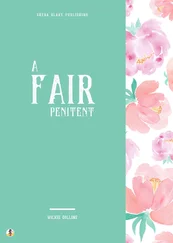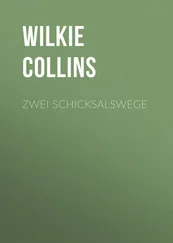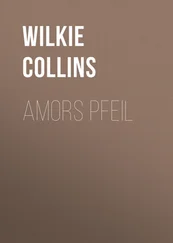Wilkie Collins - Little Novels
Здесь есть возможность читать онлайн «Wilkie Collins - Little Novels» весь текст электронной книги совершенно бесплатно (целиком полную версию без сокращений). В некоторых случаях можно слушать аудио, скачать через торрент в формате fb2 и присутствует краткое содержание. Год выпуска: 1999, Жанр: Классическая проза, на английском языке. Описание произведения, (предисловие) а так же отзывы посетителей доступны на портале библиотеки ЛибКат.
- Название:Little Novels
- Автор:
- Жанр:
- Год:1999
- ISBN:нет данных
- Рейтинг книги:5 / 5. Голосов: 1
-
Избранное:Добавить в избранное
- Отзывы:
-
Ваша оценка:
- 100
- 1
- 2
- 3
- 4
- 5
Little Novels: краткое содержание, описание и аннотация
Предлагаем к чтению аннотацию, описание, краткое содержание или предисловие (зависит от того, что написал сам автор книги «Little Novels»). Если вы не нашли необходимую информацию о книге — напишите в комментариях, мы постараемся отыскать её.
Little Novels — читать онлайн бесплатно полную книгу (весь текст) целиком
Ниже представлен текст книги, разбитый по страницам. Система сохранения места последней прочитанной страницы, позволяет с удобством читать онлайн бесплатно книгу «Little Novels», без необходимости каждый раз заново искать на чём Вы остановились. Поставьте закладку, и сможете в любой момент перейти на страницу, на которой закончили чтение.
Интервал:
Закладка:
“When you hear where I met with her,” he began, “you will most likely not want to hear any more. I saw her, for the first time, on the stage of a music hall.”
He looked at Dick. Perfectly quiet and perfectly impenetrable, Dick only said, “Go on.” Beaucourt continued in these words:
“She was singing Arne’s delicious setting of Ariel’s song in the ‘Tempest,’ with a taste and feeling completely thrown away on the greater part of the audience. That she was beautiful—in my eyes at least—I needn’t say. That she had descended to a sphere unworthy of her and new to her, nobody could doubt. Her modest dress, her refinement of manner, seemed rather to puzzle than to please most of the people present; they applauded her, but not very warmly, when she retired. I obtained an introduction through her music-master, who happened to be acquainted professionally with some relatives of mine. He told me that she was a young widow; and he assured me that the calamity through which her family had lost their place in the world had brought no sort of disgrace on them. If I wanted to know more, he referred me to the lady herself. I found her very reserved. A long time passed before I could win her confidence—and a longer time still before I ventured to confess the feeling with which she had inspired me. You know the rest.”
“You mean, of course, that you offered her marriage?”
“Certainly.”
“And she refused you on account of your position in life.”
“No. I had foreseen that obstacle, and had followed the example of the adventurous nobleman in the old story. Like him, I assumed a name, and presented myself as belonging to her own respectable middle class of life. You are too old a friend to suspect me of vanity if I tell you that she had no objection to me, and no suspicion that I had approached her (personally speaking) under a disguise.”
“What motive could she possibly have had for refusing you?” Dick asked.
“A motive associated with her dead husband,” Beaucourt answered. “He had married her—mind, innocently married her—while his first wife was living. The woman was an inveterate drunkard; they had been separated for years. Her death had been publicly reported in the newspapers, among the persons killed in a railway accident abroad. When she claimed her unhappy husband he was in delicate health. The shock killed him. His widow—I can’t, and won’t, speak of her misfortune as if it was her fault—knew of no living friends who were in a position to help her. Not a great artist with a wonderful voice, she could still trust to her musical accomplishments to provide for the necessities of life. Plead as I might with her to forget the past, I always got the same reply: ‘If I was base enough to let myself be tempted by the happy future that you offer, I should deserve the unmerited disgrace which has fallen on me. Marry a woman whose reputation will bear inquiry, and forget me.’ I was mad enough to press my suit once too often. When I visited her on the next day she was gone. Every effort to trace her has failed. Lost, my friend—irretrievably lost to me!”
He offered his hand and said good-night. Dick held him back on the doorstep.
“Break off your mad engagement to Miss Dulane,” he said. “Be a man, Howel; wait and hope! You are throwing away your life when happiness is within your reach, if you will only be patient. That poor young creature is worthy of you. Lost? Nonsense! In this narrow little world people are never hopelessly lost till they are dead and underground. Help me to recognize her by a description, and tell me her name. I’ll find her; I’ll persuade her to come back to you—and, mark my words, you will live to bless the day when you followed my advice.”
This well-meant remonstrance was completely thrown away. Beaucourt’s despair was deaf to every entreaty that Dick had addressed to him. “Thank you with all my heart,” he said. “You don’t know her as I do. She is one of the very few women who mean No when they say No. Useless, Dick—useless!”
Those were the last words he said to his friend in the character of a single man.
Part II
PLATONIC MARRIAGE.
III.
“SEVEN months have passed, my dear Dick, since my ‘inhuman obstinacy’ (those were the words you used) made you one of the witnesses at my marriage to Miss Dulane, sorely against your will. Do you remember your parting prophecy when you were out of the bride’s hearing? ‘A miserable life is before that woman’s husband—and, by Jupiter, he has deserved it!’
“Never, my dear boy, attempt to forecast the future again. Viewed as a prophet you are a complete failure. I have nothing to complain of in my married life.
“But you must not mistake me. I am far from saying that I am a happy man; I only declare myself to be a contented man. My old wife is a marvel of good temper and good sense. She trusts me implicitly, and I have given her no reason to regret it. We have our time for being together, and our time for keeping apart. Within our inevitable limits we understand each other and respect each other, and have a truer feeling of regard on both sides than many people far better matched than we are in point of age. But you shall judge for yourself. Come and dine with us, when I return on Wednesday next from the trial trip of my new yacht. In the meantime I have a service to ask of you.
“My wife’s niece has been her companion for years. She has left us to be married to an officer, who has taken her to India; and we are utterly at a loss how to fill her place. The good old lady doesn’t want much. A nice-tempered refined girl, who can sing and play to her with some little taste and feeling, and read to her now and then when her eyes are weary—there is what we require; and there, it seems, is more than we can get, after advertising for a week past. Of all the ‘companions’ who have presented themselves, not one has turned out to be the sort of person whom Lady Howel wants.
“Can you help us? In any case, my wife sends you her kind remembrances; and (true to the old times) I add my love.”
On the day which followed the receipt of this letter, Dick paid a visit to Lady Howel Beaucourt.
“You seem to be excited,” she said. “Has anything remarkable happened?”
“Pardon me if I ask a question first,” Dick replied. “Do you object to a young widow?”
“That depends on the widow.”
“Then I have found the very person you want. And, oddly enough, your husband has had something to do with it.”
“Do you mean that my husband has recommended her?”
There was an undertone of jealousy in Lady Howel’s voice—-jealousy excited not altogether without a motive. She had left it to Beaucourt’s sense of honor to own the truth, if there had been any love affair in his past life which ought to make him hesitates before he married. He had justified Miss Dulane’s confidence in him; acknowledging an attachment to a young widow, and adding that she had positively refused him. “We have not met since,” he said, “and we shall never meet again.” Under those circumstances, Miss Dulane had considerately abstained from asking for any further details. She had not thought of the young widow again, until Dick’s language had innocently inspired her first doubt. Fortunately for both of them, he was an outspoken man; and he reassured her unreservedly in these words: “Your husband knows nothing about it.”
“Now,” she said, “you may tell me how you came to hear of the lady.”
“Through my uncle’s library,” Dick replied. “His will has left me his collection of books—in such a wretchedly neglected condition that I asked Beaucourt (not being a reading man myself) if he knew of any competent person who could advise me how to set things right. He introduced me to Farleigh & Halford, the well-known publishers. The second partner is a book collector himself, as well as a bookseller. He kindly looks in now and then, to see how his instructions for mending and binding are being carried out. When he called yesterday I thought of you, and I found he could help us to a young lady employed in his office at correcting proof sheets.”
Читать дальшеИнтервал:
Закладка:
Похожие книги на «Little Novels»
Представляем Вашему вниманию похожие книги на «Little Novels» списком для выбора. Мы отобрали схожую по названию и смыслу литературу в надежде предоставить читателям больше вариантов отыскать новые, интересные, ещё непрочитанные произведения.
Обсуждение, отзывы о книге «Little Novels» и просто собственные мнения читателей. Оставьте ваши комментарии, напишите, что Вы думаете о произведении, его смысле или главных героях. Укажите что конкретно понравилось, а что нет, и почему Вы так считаете.











